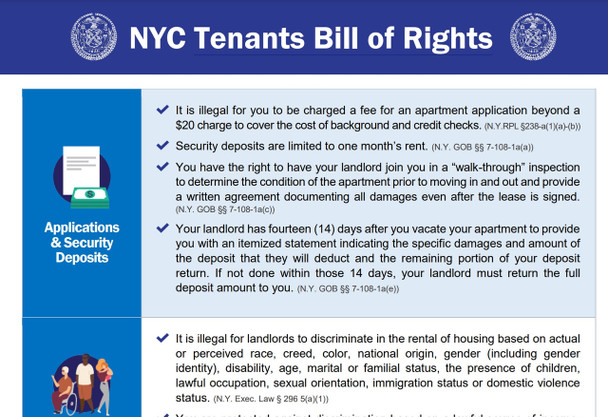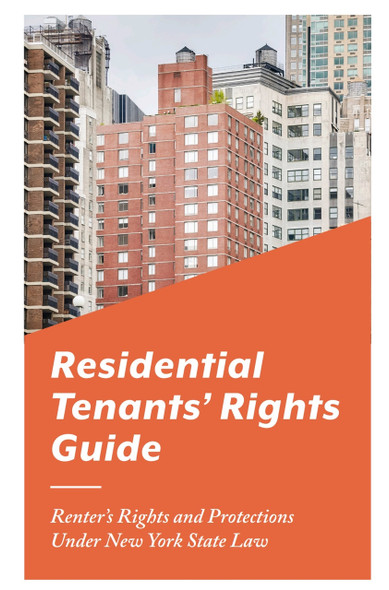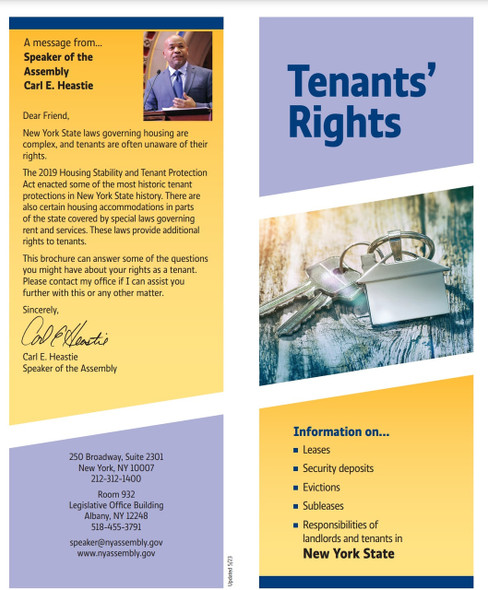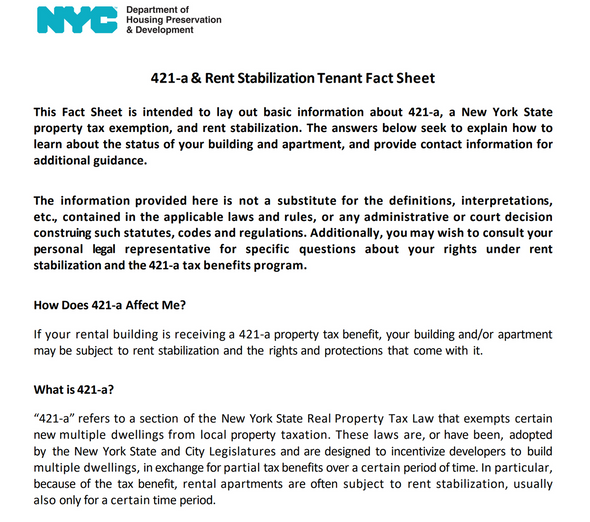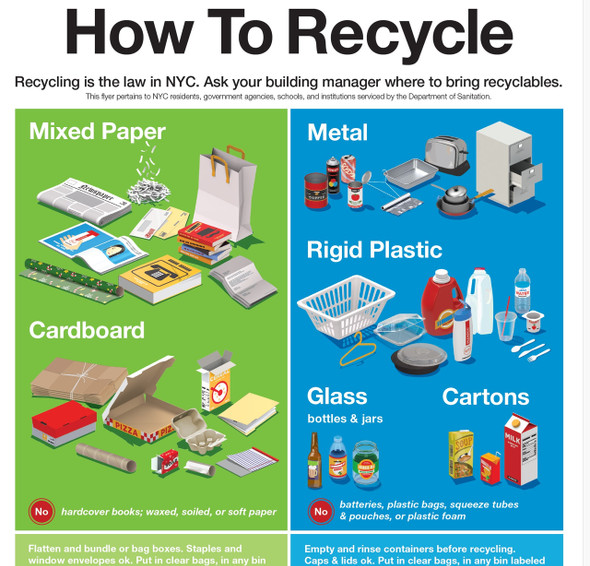Description
NYC TENANTS BILL OF RIGHTS (PDF ) FILE
The NYC Tenants' Bill of Rights: Empowering Renters with Knowledge and Protection
In a city as diverse and dynamic as New York, renters make up a significant portion of the population. Recognizing the need to safeguard the rights and well-being of tenants, the NYC Comptroller has introduced the Tenants' Bill of Rights. This comprehensive document aims to inform and empower tenants, ensuring they are aware of their legal protections and can effectively advocate for themselves in the rental market.
Overview of the Tenants' Bill of Rights
The Tenants' Bill of Rights, presented by the NYC Comptroller, serves as a vital resource for renters across the city. It outlines key rights and protections afforded to tenants under New York City and State laws. By consolidating this information into a single, accessible document, the Comptroller's office aims to demystify the complexities of housing regulations and promote fair treatment for all tenants.
Key Provisions of the Tenants' Bill of Rights
-
Right to a Safe and Habitable Home:
- Tenants are entitled to live in apartments that meet basic standards of safety and habitability. This includes proper maintenance, heat, hot water, and protection from hazardous conditions.
- Landlords are required to make necessary repairs promptly and ensure that all building systems are functioning correctly.
-
Protection Against Unlawful Evictions:
- Tenants have the right to remain in their homes unless the landlord follows the legal process for eviction.
- Landlords cannot evict tenants without a court order and must provide appropriate notice before initiating eviction proceedings.
-
Rent Stabilization and Rent Control:
- Many tenants in NYC live in rent-stabilized or rent-controlled apartments, which provide protections against unreasonable rent increases and guarantee the right to renew leases.
- The Bill of Rights details how tenants can determine if their apartment is subject to these regulations and what protections they enjoy.
-
Right to Organize:
- Tenants have the right to form, join, and participate in tenant associations without fear of retaliation from landlords.
- These associations can advocate for tenants' rights and work collectively to address common issues within a building or complex.
-
Right to Privacy:
- Tenants are entitled to privacy within their homes. Landlords must provide reasonable notice before entering an apartment, except in emergencies.
- Unauthorized or frequent entry by landlords without tenant consent is prohibited.
-
Protection from Discrimination:
- Discrimination in housing based on race, color, national origin, gender, disability, sexual orientation, age, marital status, or family status is illegal.
- Tenants who believe they have been discriminated against can file complaints with the NYC Commission on Human Rights or other appropriate agencies.
-
Security Deposit Protections:
- Landlords must follow specific rules regarding the collection, handling, and return of security deposits.
- Tenants are entitled to receive their security deposit back within a reasonable time after moving out, minus any lawful deductions.
-
Information and Transparency:
- Tenants have the right to receive clear and accurate information about their lease terms, building policies, and their legal rights.
- The Comptroller’s office provides resources and assistance to help tenants understand and exercise their rights.
How the Tenants' Bill of Rights Benefits Renters
The Tenants' Bill of Rights is a powerful tool for renters, offering several benefits:
- Empowerment: By being informed about their rights, tenants can better advocate for themselves and address issues proactively.
- Protection: Knowing the legal protections available helps tenants safeguard themselves against unfair practices and potential exploitation.
- Community Building: Encouraging tenants to organize and collaborate strengthens community bonds and collective bargaining power.
- Access to Resources: The Bill of Rights connects tenants with resources and support services, including legal assistance, housing advocacy groups, and city agencies.
Conclusion
The NYC Tenants' Bill of Rights, presented by the NYC Comptroller, is a crucial step toward ensuring fair and equitable treatment for all renters in the city. By consolidating essential information and outlining key protections, this document empowers tenants to understand and exercise their rights effectively. As New York City continues to evolve, the Tenants' Bill of Rights stands as a testament to the city's commitment to housing justice and the well-being of its residents.
For more detailed information and to access the full Tenants' Bill of Rights, renters can visit the NYC Comptroller's websit.
DISCLAIMER DISCLAIMER ON LEGAL CODES DISCLAIMER ON SIGN USE GENERAL INFORMATION DISCLAIMER
We are a small, family-owned and family-operated Brooklyn-based business. We are not a City of New York store, nor are our website, products, or services affiliated with the City of New York or any agency of the City of New York. Neither we, nor our business, websites, products, services, or any hyperlinks from our website are sponsored by, approved by, affiliated with, endorsed by, or connected to the City of New York or any agency of the City of New York, including but not limited to HPD, DOB, DOT, DSNY, FDNY, or any federal entity, directly or by implication.
The codes, regulations, and requirements referenced on our website may not represent the most recent or updated versions. State, federal, or local regulatory agencies may have more current or accurate information. We make no warranties or guarantees about the accuracy, completeness, or adequacy of the information provided on this site or linked from it. Customers should verify all information by reviewing the official sources directly.
The requirements for sign content depend on intended use and applicable laws. The buyer is solely responsible for determining the appropriate content for a sign or package of signs. We make no warranty or representation regarding the suitability of any sign for a specific application. It is the customer’s responsibility to ensure that the signs ordered are in compliance with all applicable state, federal, local, and municipal laws. Customers are encouraged to carefully review our Terms and Conditions prior to purchase.
All content on this site is provided for informational purposes only and does not constitute legal advice, professional advice, or a definitive statement of law. For guidance on specific requirements, customers should consult the laws and regulations referenced, as well as any rules applicable in their jurisdiction. You may wish to consult with an attorney or qualified professional to ensure compliance with all applicable legal obligations.

